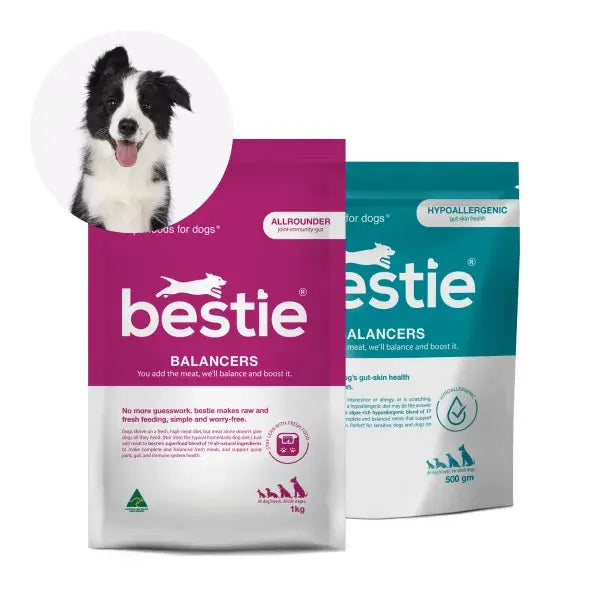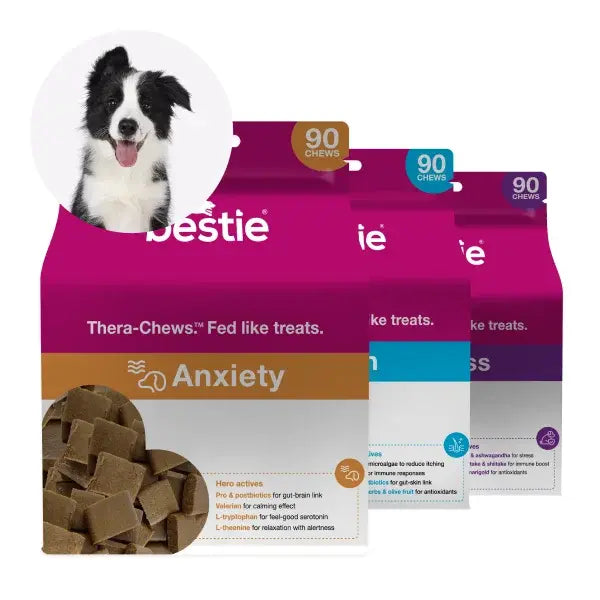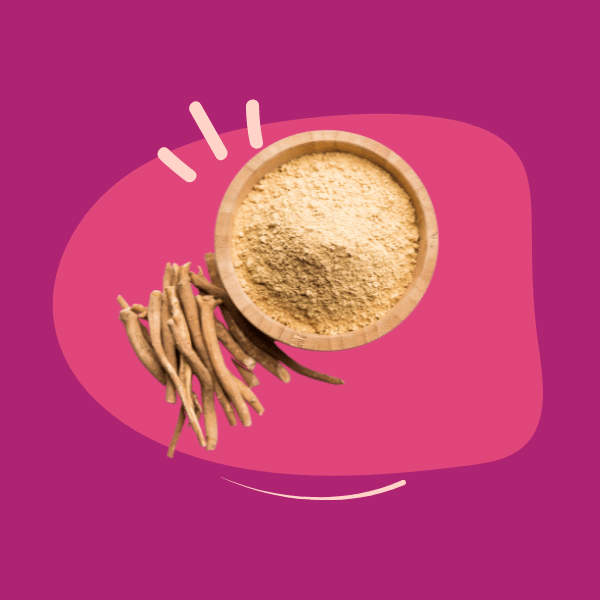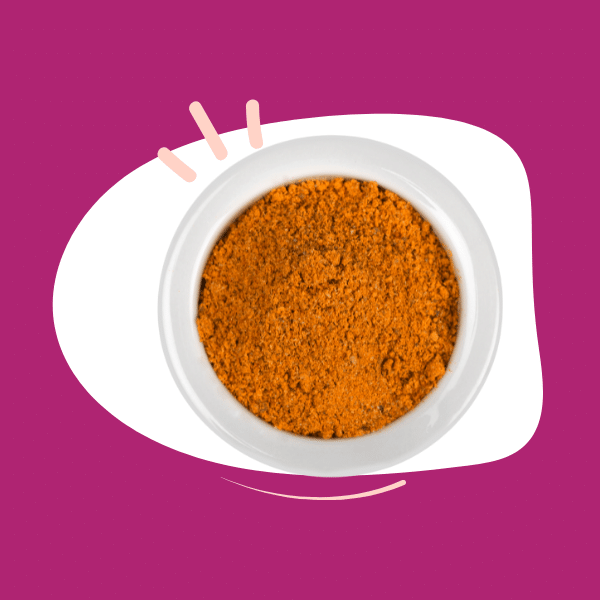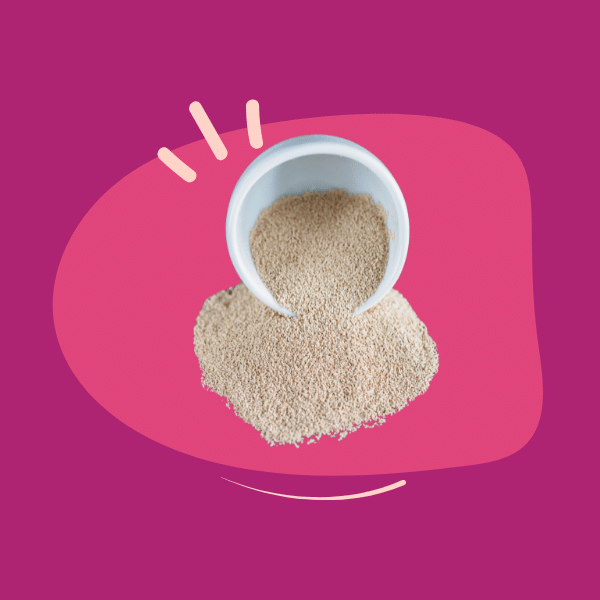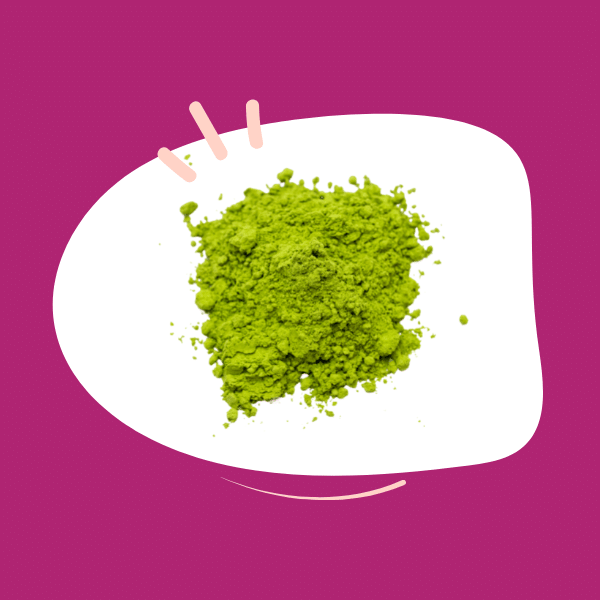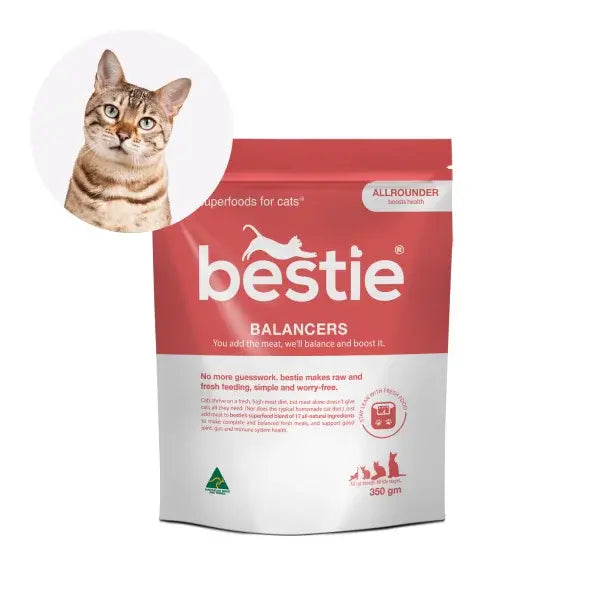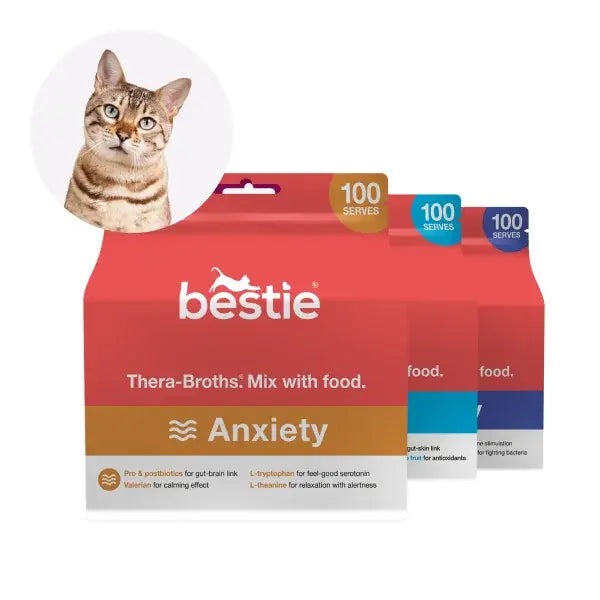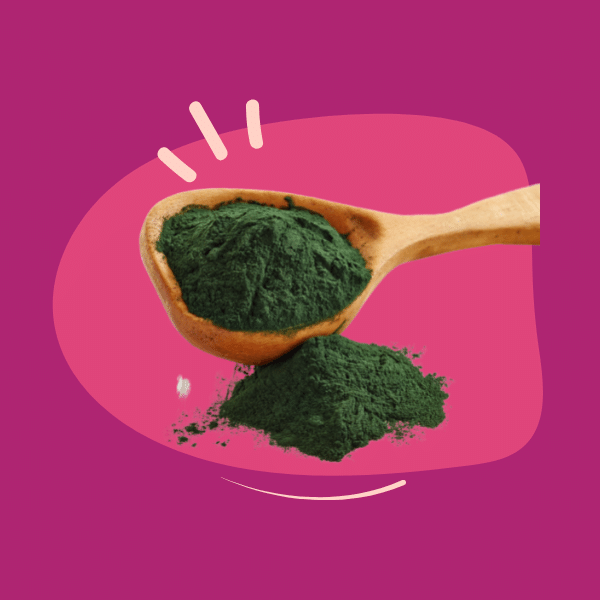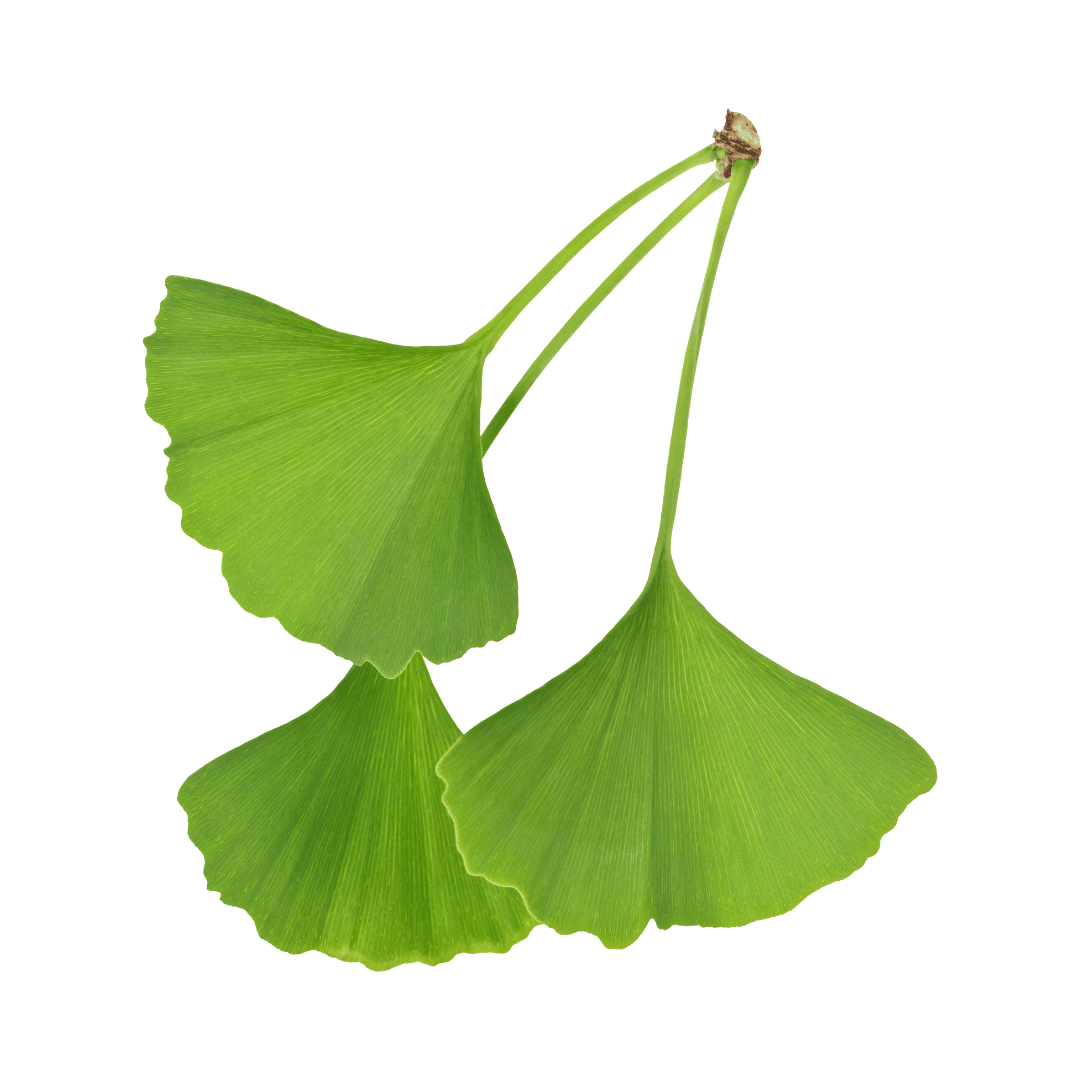Spirulina is one of the most popular supplements around. It rocketed to superfood status (sorry) when NASA used it as a dietary supplement for astronauts during space missions. It’s packed with nutrients and antioxidants.
That’s one of the reasons that spirulina is a key ingredient in our Bake-at-Home Treat Mix range. With other ingredients like hemp oil and protein, nutritional yeast and cricket protein, our Noochies, Hempies and Crikkies are a very easy-to-make health alternative to store-bought treats for dogs.
What Is Spirulina?
Spirulina(Spirulina platensis) is a type of blue-green algae. It’s an abundant and diverse source of bio-active compounds and nutrients. Some of these nutrients, like protein, are of high quality and in a highly usable form. This means that it can be easily digested, metabolised, and utilised in the body.
Spirulina also contains significant amounts of the following:
B-Vitamins
Vitamin B1 (thiamin) and B2 (riboflavin) play important roles in the energy production of cells. Vitamin B3 (niacin) supports DNA repair as well as skin health and integrity.
Minerals
Spirulina is one of nature’s best sources of highly absorbable iron from plants. There are also substantial quantities of calcium and manganese.
Manganese is an important component in many physiological processes in the body including the synthesis of sex hormones, bones and connective tissue, and blood clotting factors. It’s also important in the metabolism of fats and carbohydrates, absorption of calcium, regulation of blood sugar, and normal function of the brain and nerves.
Calcium promotes strong bones and teeth. It plays an important role in blood circulation, muscle contraction, and the release of hormones. The mineral is also essential in conducting nerve impulses from the other parts of the body to the brain.
Fatty acids
Spirulina is one of the few natural sources of essential fatty acids (EFAs) such as gamma-linolenic acid, (GLA), alpha-linolenic acid (ALA), linoleic acid, stearidonic acid, eicosapentaenoic acid (EPA), docosahexaenoic acid (DHA), and arachidonic acid.
These essential fatty acids are important components of cell membranes and are precursors to many other substances in the body such as those involved in regulating blood pressure and inflammatory responses. There is also growing interest in the role of omega-3 fatty acids in the prevention of diabetes and certain types of cancer.1
Chlorophyll
Spirulina is extremely high in chlorophyll, a plant pigment that plays a major role in capturing light for photosynthesis. Chlorophyll has antioxidant and anti-mutagenic activities.6It can hasten the wound healing process by more than 25% by triggering tissue growth and inhibiting the progress of bacterial infections.
Another amazing fact about chlorophyll is that it has a similar chemical structure to haemoglobin. It’s an important component of red blood cells that are essential for carrying oxygen throughout the body.
How does spirulina support good health?
1. Spirulina is a powerful immunostimulant
Spirulina can modulate both cellular and humoral immune responses. There is an increased immune system response against antigen exposure in cats given spirulina.7
In dogs and mice, spirulina extract could increase white blood cell numbers when the bone marrow has been damaged by radiation therapy.8
When it comes to modulating the humoral immune response, spirulina exerts a stimulatory effect on immunoglobulin A (IgA). It’s a type of antibody that plays an important role in the immune function of the mucous membranes that line the respiratory and digestive systems.
When dogs have a poor response to vaccination, it can increase their risk of suffering from illnesses. One research study showed that after consuming a diet that contains spirulina for several weeks, the dogs’ bodies responded with a faster and stronger induction of antibodies after rabies vaccination. By strengthening the immune system, spirulina-supplemented dogs are likely to have a better resistance to infection.9
2. Spirulina has antioxidant and anti-inflammatory properties
Oxidation and inflammation play major roles in the development and progression of diseases. Phycocyanin is the main active antioxidant in spirulina. Other bioactive substances that contribute to the antioxidant and anti-inflammatory properties of spirulina include beta-carotene, tocopherols, and essential fatty acids.
-
Phycocyanin
The powerful antioxidant effect of spirulina is brought about in part by phycocyanin. Many studies, both in vitro and in vivo, have been able to demonstrate the potent anti-inflammatory activity of this algal pigment.
Phycocyanin can act as a free radical scavenger, iron chelator, and protects the activity of antioxidant enzymes.2It can promote animal blood cell regeneration, improve lymphocyte activity and lymphatic system to improve immune function, and comprehensively enhance the disease resistance of the body.
It has been reported that phycocyanin has anti-oxidative function, anti-inflammatory activity, anti-cancer function, immune enhancement function, liver and kidney protection pharmacological effects. It also possesses potent antiviral effects.3
-
Beta-Carotene
Beta-carotene is a vitamin A precursor. It is converted to vitamin A in the body. Spirulina contains ten to fifteen times more beta-carotene than carrots.4 As an antioxidant, beta-carotene traps free radicals and supports eye health.5
3. Spirulina promotes gut health and immune status
Spirulina supports the growth of beneficial micro-organisms in the gut which can significantly enhance immune and gut health. One study showed that consuming spirulina-fortified food resulted in increased levels of fecal IgA.
While the mechanism through which spirulina would influence the microbial population in the gut remains unclear, it is thought that the stability of the gut microbiota is likely connected to the improved immune status of the gut.
IgA plays an important role in defending the body against infection, preventing pathogens from entering the wall of the intestines, and in the selection and maintenance of microbial population in the gut. The primary role of IgAs in the intestine is to maintain intestinal homoeostases and protect the intestinal mucosa from invading micro-organisms and toxins in a process known as “immune exclusion”.10
4. Spirulina may help alleviate allergy symptoms
Spirulina may help provide allergy relief in pets that are suffering from frequent allergy flare-ups. This can be attributed to spirulina’s anti-inflammatory properties. Also, IgA works to protect the surfaces of the body from the most immediate, superficial kind of invaders, including allergens.
Want to get a little spirulina into your dog or cat’s diet? Try the healthy treats you bake at home. Just add water, mix, roll and bake.
References
- Lunn J and Theobald H. (2006) The health effects of dietary unsaturated fatty acids. Nutrition Bulletin 31:178-224
- Romay C, Armesto J, Remirez D, Gonzalez R, Ledon N, Garcia I. Antioxidant and anti-inflammatory properties of C-phycocyanin from blue-green algae. Inflamm Res.(1998) 47:36–41. doi: 10.1007/s000110050256
- Jiang, L et al. Phycocyanin: A Potential Drug for Cancer Treatment. J Cancer. 2017; 8(17): 3416–3429.
- Karkos PD, et al. Spirulina in clinical practice: evidence-based human applicationEvid Based Complement Alternat Med.(2011) 2011:531053. doi: 10.1093/ecam/nen058
- (Munawaroh et al 2019 J. Phys.: Conf. Ser. 1280 022013) - Halim R, Hosikian A, Lim S and Danquah M K 2010 Chlorophyll extraction from microalgae: A review on the process engineering aspects Int. J. Chem. Eng.
- Qureshi MA, Ali RA. Spirulina platensis exposure enhances macrophage phagocytic function in cats. Immunopharmacol Immunotoxicol. (1996) 18:457–63. doi: 10.3109/08923979609052747
- Zhang HQ, Lin AP, Sun Y, Deng YM. Chemo- and radio-protective effects of polysaccharide of Spirulina platensis on hemopoietic system of mice and dogs. Acta Pharmacol Sin. (2001) 22:1121–4.
- Satyarah, E et al.Supplementation of Diets With Spirulina Influences Immune and Gut Function in Dogs. Front Nutr. 2021; 8: 667072.Published online 2021 May 28. doi: 10.3389/fnut.2021.667072
- Mantis NJ, Rol N, Corthesy B. Secretory IgA's complex roles in immunity and mucosal homeostasis in the gut. Mucosal Immunol.(2011) 4:603–11. doi: 10.1038/mi.2011.41


